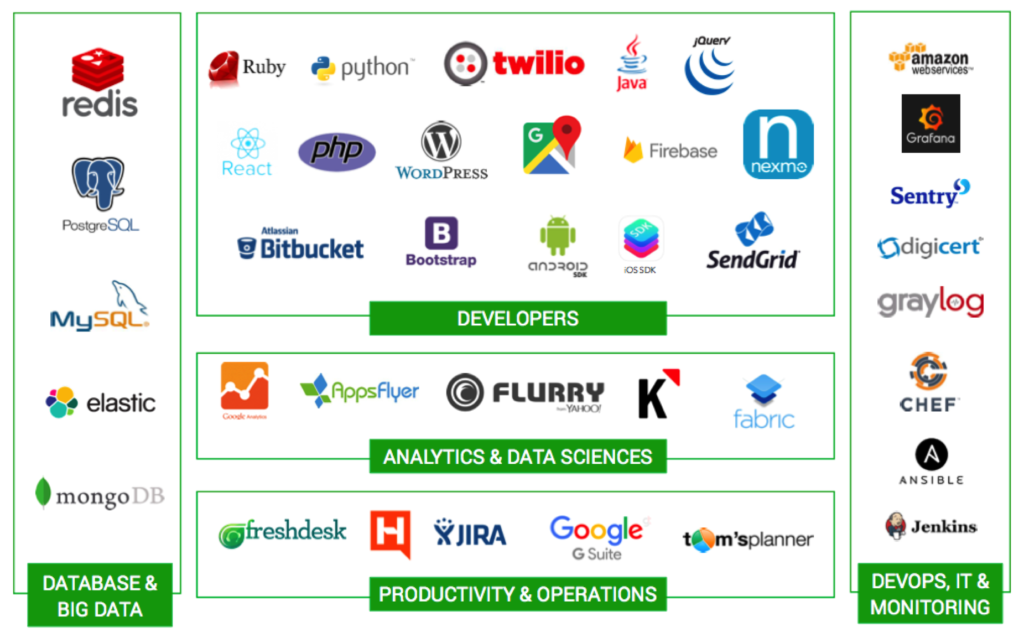
6 Best Practices for Omnichannel Marketing Success
Omnichannel marketing is an iterative program design that allows brands to reach the same people over time across a combination of offline and online channels.
The underlying objective of any omnichannel marketing program?
To increase customer acquisition (or current customer value), reduce ineffective media, and realize operational efficiencies.
Many brands think they engage in omnichannel marketing because they run campaigns targeted at similar consumer segments (e.g. “Millennials”) across multiple channels. But is this really omnichannel marketing?—Probably not.
While all campaigns might target “Millennials”, each campaign could have a different audience definition, or take a different approach to execution across each channel. In other words, these Millennial-focused campaigns are at risk of targeting different people, even though they’re supposed to be targeting the same prospects. 
This reality explains why so many of these faux-omnichannel campaigns fail to drive the improved business outcomes mentioned earlier:
- Increased customer acquisition (or current customer value)
- A reduction of ineffective media
- The realization of operational efficiencies
The two obstacles to omnichannel marketing success
Organization and technology are the two primary obstacles to omnichannel marketing success.
For brands to succeed with omnichannel marketing, an omni-vision (i.e. direction) must come from the executive team. There must be organizational alignment and incentive alignment, in addition to experienced personnel, external partners, and compliance teams all working in an agile environment with a shared goal in mind.
(It’s very common to see different marketing channels controlled by siloed groups and agencies that never collaborate…or even compete.)
Similarly, technology plays a crucial role.
A robust technology stack is required to execute any omnichannel marketing effort—one that incorporates:
- Centralized data management
- Consumer identity
- Consumer intent
- Decisioning
- Campaign execution
- Personalization
- Measurement
- Optimization
Unfortunately, many companies attempt to build such a stack by integrating disparate platforms not designed to work in unison to achieve omnichannel marketing success.
The best practices for omnichannel marketing success
Start with your business outcomes
The objectives of any omnichannel program should align with the most important and scalable objectives of your business, as well as their corresponding KPIs (e.g. Cost Per Incremental Customer Acquisition). Force rank your use cases and avoid non-conclusive KPIs.
Understand your competitive advantage
Recognize where you intend to invest and win as a company from a data and marketing capabilities perspective. Usually, it’s in the areas of marketing strategy, content, offer development, and consumer analytics.
Leverage partners to meet technology requirements
Don’t waste valuable resources attempting to develop data, marketing, or advertising technologies when they’re:
- Not valuable
- Commercially available
- Not in your core competency
Avoiding investment in technology that doesn’t need to be proprietary will increase your speed to market, while reducing your infrastructure, development, and maintenance costs.
Solve identity first
A strong identity layer that understands real people across all offline and online channels is 100% necessary for omnichannel success. Attaining this identity layer usually requires a technology partner with a deterministic method of identity management. That technology partner must also encompass key consumer identifiers such as name, address, email address, cookies, mobile advertising IDs (MAIDs), and IP address.
Measure business outcomes and incrementality
To measure every campaign and every channel to the highest of possible standards, you must abandon outdated, inaccurate measurement techniques such as last-click attribution. These antiquated modes of measurement are not acceptable in today’s omnichannel world. Strive to understand what would have occurred had you not invested, and what outcome was specifically driven by a campaign.
Patience, quick wins and a roadmap
Successful omnichannel marketing programs take time to develop and even more time to mature. Therefore, you need to give your omnichannel marketing programs time to grow. Look to demonstrate some value in the short term, but don’t deny your campaigns the opportunity to deliver scalable ROI in the long run (i.e. multiple years).


